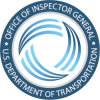What We Looked AtAllegiant Air—the Nation’s 11th largest passenger airline—grew faster than the airline industry as a whole in 2018 by carrying approximately 14 million passengers. However, incidents at this air carrier—including a series of in-flight engine shutdowns, aborted takeoffs, and unscheduled landings—have raised concerns about its maintenance practices. FAA uses its Compliance Program to achieve rapid compliance with regulatory standards, eliminate safety risks, and ensure positive and permanent changes that benefit the aviation industry. This program is based on the concept that the greatest safety risk comes from an operator who is “unwilling or unable” to comply with rules, rather than a specific event or its outcome. Our objective was to assess FAA’s processes for investigating improper maintenance practices at Allegiant Air. Specifically, we assessed FAA’s (1) oversight of longstanding maintenance issues impacting safety at Allegiant Air and (2) process for ensuring Allegiant Air implemented effective corrective actions to address the root causes of maintenance problems. What We FoundSince 2011, FAA inspectors have not consistently documented risks associated with 36 Allegiant Air in-flight engine shutdowns for its MD-80 fleet or correctly assessed the root cause of maintenance issues. This was because inspectors did not follow FAA’s inspector guidance that requires them to document changes in their oversight once they have identified areas of increased risk. Also, FAA’s Compliance Program and inspector guidance do not include key factors related to carriers’ violations of Federal regulations. Specifically, they do not contain provisions for inspectors to consider the severity of outcomes when deciding what action to take following a non-compliance. As a result, FAA is missing opportunities to address maintenance issues and mitigate safety risks in a timely manner. Our RecommendationsWe made nine recommendations to improve the effectiveness of FAA’s oversight of air carrier maintenance programs. FAA concurred with eight of our nine recommendations and partially concurred with one. We consider the eight recommendations resolved but open, pending completion of planned actions. We are asking FAA to reconsider its actions for the partially-concurred recommendation.
Date Issued
Submitting OIG
Department of Transportation OIG
Other Participating OIGs
Department of Transportation OIG
Agencies Reviewed/Investigated
Department of Transportation
Components
Federal Aviation Administration
Report Number
AV2020013
Report Description
Report Type
Audit
Agency Wide
Yes
Number of Recommendations
0
Questioned Costs
$0
Funds for Better Use
$0
Open Recommendations
This report has 1 open recommendations.
| Recommendation Number | Significant Recommendation | Recommended Questioned Costs | Recommended Funds for Better Use | Additional Details | |
|---|---|---|---|---|---|
| 8 | Yes | $0 | $0 | ||
| Perform a comprehensive review of FAA's root cause analysis training to ensure it meets Agency expectations. Modify training, as appropriate, based on the review and require inspectors to complete the course(s) or offer inspectors access to industry-based training programs. | |||||


